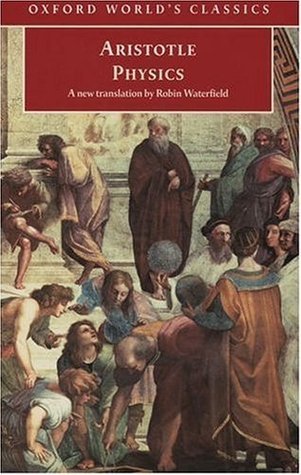Physics Book Summary
TL;DR
Aristotle's 'Physics' offers foundational insights into the natural sciences, exploring motion, causality, and the nature of the physical world, made accessible through this modern translation.
What is Physics about
Aristotle's 'Physics' is a foundational text in the study of natural sciences. Written by Aristotle in the 4th century BCE, it systematically explores the principles of motion, causality, and the nature of the physical world. This modern translation, the first since 1930, by David Bostock and Robin Waterfield, makes Aristotle's profound and complex ideas more accessible to contemporary readers. The book includes a lucid introduction and extensive notes that clarify the structure of each section and address particular interpretive challenges, providing a comprehensive understanding of Aristotle's views on physics.
Physics 6 Key Takeaways
Principle of Motion
Aristotle explores the nature of motion, asserting that every motion has a mover and that objects move to fulfill their potential. He categorizes motion into four types: locomotion, alteration, natural growth, and decay.
Four Causes
Aristotle introduces the concept of four causes – material, formal, efficient, and final – to explain why things exist or happen. This framework helps in understanding the underlying principles of physical phenomena.
Nature of Change
According to Aristotle, change is the actualization of potentiality. He elaborates on how substances undergo changes while maintaining their essential nature, a concept fundamental to his physics.
Place and Space
Aristotle defines place as the immediate immovable container of a body and distinguishes it from space, which he views as an extension that bodies may occupy.
Time
Aristotle describes time as a measure of change and motion, linked intrinsically to the concept of 'before' and 'after.' He argues that time cannot exist without change.
The Unmoved Mover
Aristotle introduces the concept of the Unmoved Mover, a primary cause of all motion that itself is not moved by anything else, laying the groundwork for later metaphysical and theological explorations.
Top Physics Quotes
- “The natural way of doing things is to start from what is more knowable and clearer to us and proceed towards what is clearer and more knowable by nature.”
- “Nature does nothing in vain.”
Who should read Physics?
Students and scholars of philosophy and the history of science will find 'Physics' invaluable for understanding the foundational concepts of the natural sciences. This modern translation also makes it accessible to general readers interested in classical philosophy and Aristotle's contributions to science.
Physics Best Reviews
- ‘Physics’ is essential reading for those interested in the history of science and philosophy. Bostock and Waterfield have done an excellent job making this classic text accessible to modern readers without losing its original essence. - The New York Review of Books
People also liked these summaries
Physics FAQs
What did Aristotle say about physics?
In 'Physics,' Aristotle states that objects fall at a speed proportional to their weight and inversely proportional to the density of the fluid they are immersed in. He also explores the principles of motion and causality.
Who is considered the father of physics?
Aristotle is often referred to as the 'father of old physics' due to his significant contributions to early understandings of natural phenomena and the physical world.
How long is Aristotle's 'Physics'?
The 'Physics' published by Clarendon Press is 296 pages long.
